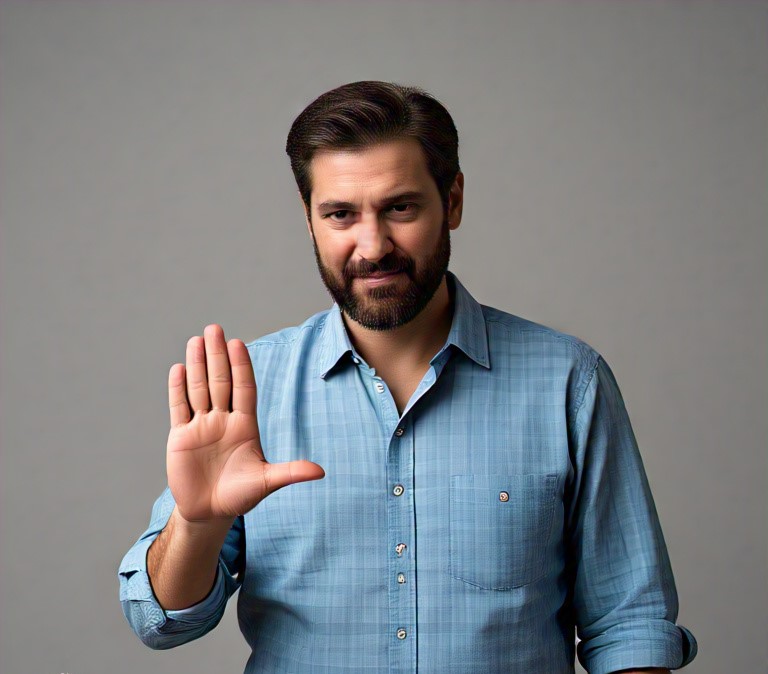I am sure you must have heard the saying, “It is not what you say, it is how you say it.” And it is true, words alone are not just enough, because two people can say the exact same sentence, but one leaves you feeling encouraged while the other leaves you feeling insulted; the difference does not lie in the content but in the delivery.
Communication they say is more than just the transfer of information; it is the transfer of emotion, intent, and respect. So a sharp tone can turn truth into a weapon, while a gentle one can turn correction into guidance; this is why the way we speak, our tone, our body language, and the spirit behind our words often matters far more than the words themselves, and when we understand this, we begin to realize that how we speak can build bridges or burn them, heal or wound, inspire or discourage. And in a world where relationships, trust, and influence are everything, how you say something truly makes all the difference.
The Power of Tone Over Words
Words are only a small fraction of communication, because over the years studies suggest that tone of voice and nonverbal cues carry far more weight than the actual vocabulary used, and that is why a soft-spoken “no” can feel kinder than a cold “please,” and why encouragement spoken harshly can feel like criticism.
You see, your tone has the power to transform meaning; it shapes whether we come across as compassionate or condescending, whether we invite openness or shut down conversation, and that is one of the many reasons a leader who communicates with empathy earns loyalty, while one who barks and shouts orders creates resistance, even if the instructions are the same, true and the correct one.
Think of moments when someone corrected you; if they delivered the truth with patience and respect, you likely felt grateful and motivated to improve, but if the same message came with sarcasm or contempt, chances are you felt defensive and hurt.
The delivery most of the time reveals the intent; when words and tone align, like kindness paired with warmth; they carry power to help the other person to do better, but when they clash, kind words spoken with bitterness, the listener trusts the tone, not the words, and this is why the way you choose to deliver your words is not just decoration; it carries the meaning.

Consider the simple phrase: “You can do better.”
- Said gently, with a smile, it inspires growth: A teacher encouraging a student to reach their potential.
- Said harshly, it wounds: A dismissal of someone’s effort as inadequate.
Or take “I’m fine.”
- Spoken calmly, it communicates genuine reassurance.
- Spoken with a cold tone, it screams that something is very wrong, even if the words say otherwise.
These examples should remind you that meaning does not just lie in words; it very very much lies in the emotional package they are delivered in.
There is plenty of nuance in the reasons why accepting corrections isn’t easy, but the most significant issue is that it can feel like an attack that is a negative assault for the majority of us. The truth is, many times, correction or criticism is a neutral or even a positive thing.
Those who disregard discipline despise themselves, but the one who heeds correction gains understanding. Proverbs 15:32 NIV
There are other possible reasons why you may be more susceptible to criticism. Your attitude toward criticism can be influenced by the culture you grew up in, but it may also feel like an insult to your self-esteem. Understanding where the hurt originates can aid in understanding how to handle criticism.
When we’re receiving corrective action, it is crucial to be able to deal with it graciously. How do we do this?
Continue Reading: How Well Do You Handle Correction?
Body Language and Presence Speak Louder Than Words
While tone of voice plays a crucial role, it is also only part of the equation. Our body language often speaks even louder than our words, and studies in psychology show that nonverbal cues, posture, eye contact, facial expressions, and gestures all carry a huge influence on how messages we give and receive.
You can say, “I believe in you,” but if your arms are crossed, your eyes looking away, your words lose credibility. The same thing with a confident stance, steady eye contact, and open gestures can make even a few words feel powerful and authentic.
Just as presence can communicate intent, posture can also convey authority or insecurity. Eye contact can build trust or create discomfort, and gestures can amplify sincerity or expose impatience. But by aligning our body language with our words, we make sure that our message is consistent, strong, and believable.
Empathy: The Hidden Ingredient in Communication
They say at the heart of effective communication is empathy; the ability to understand and connect with the feelings of others. Words and tone may convey information, but empathy makes the message memorable and impactful.
Emotional intelligence allows us to sense the state of the listener and adjust how we deliver our thoughts, because a blunt truth, spoken with compassion, is far easier to accept than the same words delivered with coldness or indifference. In the same way, encouragement that feels genuine can inspire someone for years, while empty praise is quickly forgotten. And as the saying goes, people may forget what you said, but they will never forget how you made them feel, so remember, when you speak with empathy, your words go beyond sound, they create trust, inspire action, and build lasting connections.
I don’t know if you know this but one of the greatest tests of communication is sharing hard truths. Anyone can blurt out honesty, but true wisdom lies in speaking truth without breaking trust, and the difference often comes down to how we say it.
The Stoics taught that truth should be spoken with reason, not anger. Marcus Aurelius reminded himself to correct others with kindness, not condemnation. Likewise, the Bible calls us to “speak the truth in love” (Ephesians 4:15), balancing honesty with grace.
When we deliver difficult messages with empathy and humility, they become bridges that strengthen relationships rather than barriers that divide. Hard truths, spoken with wisdom and gentleness; they carry the power to heal, guide, and transform, turning what could have been a wound into an opportunity for deeper connection.
Highly empathic people are able to listen because they feel the need to understand and be in the other person’s shoes. To truly understand the struggles and triumphs of the other person, they need to be able to get most, if not all, of the details about the other person’s story. They pay attention to what is being said and also look for non-verbal cues. This means they can focus their attention on the present moment and remain engaged in the conversation. They are able to guide conversations with sincere compassion and can help even the most reserved person share their most difficult and painful thoughts and feelings.
Most cases are handled with unspoken trust and confidence. They provide solutions that are in the person’s best interest and not their own.
Continue Reading: How Being An Empathic Person Affects You And Those Around You
Read Also: Don’t Just Talk About Being Good; Be Good!
Read Also: Don’t Make the Fool’s Mistake: Always Waiting to Be Ready
Read Also: The Abyss and the Mirror: Becoming What You Behold
Conclusion
At the end of the day, communication is not just about what we say but the spirit in which we say it. Words may fade, but tone, presence, and the feelings we leave behind linger long after the conversation ends. A careless delivery can turn truth into offense, while a thoughtful tone can turn correction into encouragement.
Whether through the warmth of your tone, the openness of your posture, or the empathy in your hearts, you have the power to shape not only what people hear but also how they carry it with them. The Stoics remind us to be measured and wise, and Scripture reminds us to season our words with grace.
So the next time you speak, remember: It does not matter only what you say; it matters greatly how you say it. Because how you speak can either close hearts or open them, tear down or build up, disconnect or connect, and if you choose wisely, your words will not just be heard; they will be remembered.





